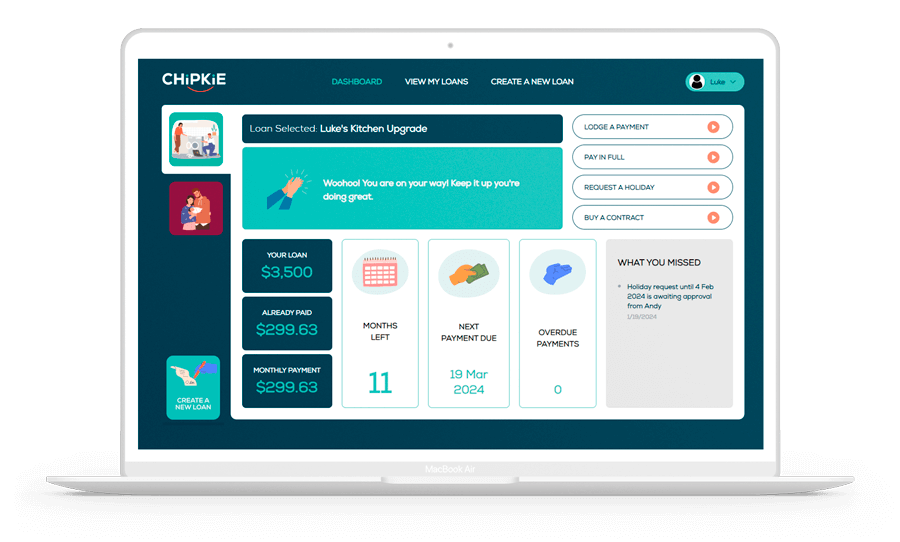Introduction
Tired of rent disappearing into the void? Ready for a place to truly call your own? Buying your first home is a major milestone, both exciting and a little daunting. But with the right preparation, it’s incredibly rewarding. Our First Home Buyer Checklist is your roadmap to a smooth and financially savvy home-buying journey. Let’s dive into the essential steps!
How to Create a First Home Buyer Checklist for 2024
- When creating your checklist, start with in-depth market research on your desired location for affordability and availability of homes.
- Thoroughly assess your financial situation – savings, down payment, getting pre-approved for a mortgage, and calculating additional costs (closing fees, moving, etc.)
- Make a detailed list of must-have features for your home (bedrooms, location, amenities) to streamline your search.
- Get expert advice (real estate agents, financial advisors, home inspectors) for informed decisions throughout the process.
Important factors to consider when creating a first home buyer checklist
- Financial readiness: Check your credit score, save, research mortgages thoroughly, and consider ALL expenses (taxes, insurance, maintenance).
- Open Houses and Viewings: Get a feel for neighbourhoods and property types.
Customizing your first home buyer checklist to fit your needs
- Credit Check: This impacts your interest rates – make improvements if needed!
- Saving + Costs: A down payment is crucial, but don’t forget stamp duty, legal fees, etc.
- Government Help: Research grants and incentives specifically for first-time buyers.
- Pre-approval: Understands your borrowing power and shows sellers you’re serious.
Utilizing technology to streamline your first home buyer checklist
- Budgeting Apps: Track income and expenses to see what you can afford.
- Mortgage Calculators: Estimate payments and play with different scenarios.
- Online Searches: Target properties based on your must-have list.
- Virtual Tours: Can help narrow down your choices before in-person visits.
Top Tips for Completing Your First Home Buyer Checklist in 2024
- Start with your credit score: Aim for the best possible rates and loan options.
- Research loan programs: Find the one that matches your goals and financial situation.
- Prioritize non-negotiables: Know what features your first home MUST have.
- Factor in ALL costs: Closing costs, inspections, and potential repairs need budgeting too.
Preparing for Inspections and Appraisals in the First Home Buyer Checklist
- Check your credit (again): It may be checked more than once during the process.
- Explore government programs: First-time buyer help can ease the financial burden.
- Budget beyond the down payment: Remember those often-overlooked extra costs.
- Pre-approval shows strength: It demonstrates to sellers that you’re a qualified buyer.
Navigating the Legal Aspects of the First Home Buyer Checklist
- Credit check (yes, again!): It’s essential to maintain good financial standing.
- Calculate your affordability: Determine down payment, mortgage payments, etc., within your budget.
- Thoroughly research mortgages: Find the perfect fit for your long-term goals.
- Don’t forget ADDITIONAL costs: Taxes, insurance, and maintenance add up!
Tips for Researching and Selecting Potential Properties
- Credit is crucial It impacts what you’ll qualify for.
- Determine your TOTAL budget: This factors in mortgage payments, taxes, insurance, etc.
- Compare mortgage lenders: Get the best rates for your situation.
- Consider extra costs: Home inspections, appraisals, moving expenses – budget for them all!
Organizing Your Finances for the First Home Buyer Checklist
- Credit check: You know the drill – maintain the best score possible!
- Explore grant options: These can significantly lessen the financial burden.
- Budget meticulously: Down payment, mortgage, closing fees, ongoing maintenance…plan for it all.
- Consider the bigger picture: Where does your new home fit in your overall lifestyle and goals?
Understanding the First Home Buyer Checklist Requirements
- Check your credit (again!): Strong scores improve your mortgage options.
- Calculate your affordability: Know your down payment potential and comfortable monthly payment range.
- Become a mortgage expert: Research different types and find the best fit for YOU.
- Budget beyond the basics: Property taxes, insurance, and maintenance add up quickly!
The Ultimate First Home Buyer Checklist for 2024
- Pre-approval + Budget: Start strong with financial clarity.
- Location Research: Find your ideal neighborhood and what’s realistically available.
- Government Help: Research grants/incentives – every dollar counts!
- Get advice: Real estate agents, conveyancers, and inspectors = your expert team.
Essential Documents for First Home Buyers
- Know your finances: Research mortgage options and get pre-approval if possible.
- Location matters: Consider the neighbourhood vibe and your lifestyle needs.
- Inspection is protection: A professional inspection uncovers potential issues.
Budgeting Tips for First Home Buyers
- Start with your credit score: Improvements can mean better loan terms.
- Save diligently: Your down payment is crucial, and bigger is better!
- Get mortgage savvy: Compare rates and programs to find the optimal fit.
- The true cost: Factor in home inspections, closing fees, and homeowners insurance.
Property Inspection Must-Dos for First Home Buyers
- Credit check time: Aim to maintain or improve your score during the process.
- What can you afford? Know your budget inside and out.
- Research, research! Understanding mortgages empowers you.
- Don’t forget the extras: Taxes, insurance, and maintenance impact your long-term affordability.
Understanding Mortgage Options for First Home Buyers
- Credit is king: It heavily impacts your rates and loan possibilities.
- Thorough research: Different mortgages suit different situations – find your match!
- Calculate EVERYTHING: Factor in taxes, insurance, etc., for your true cost of homeownership.
- Seek professional help: Get an inspection, it could save you thousands!
Navigating the Closing Process for First Home Buyers
- Credit check reminder: Maintain good standing all the way to closing.
- Affordability is KEY: Know your down payment and realistic monthly payments.
- Mortgage mastery: Choose the right type for your situation and goals.
- Budget for the end: Closing costs, taxes, insurance – have those funds in place!
1. Hone in on a location
- Credit counts Good scores = better mortgage options.
- Calculate carefully: Know your down payment, mortgage payments, and additional costs.
- Compare and contrast: Research different mortgage options for the best fit.
2. House or apartment?
- Credit check time: Good scores = better mortgage options.
- Think government help: Research grants or incentives for first-time buyers.
- Budget beyond the price tag: Factor in taxes, maintenance, and insurance.
- Pre-approval power: It shows sellers you’re serious AND establishes your budget.
3. Check whether the property has all the features you need
- Credit matters: It directly affects your loan terms and rates.
- Seek first-time buyer programs: These can reduce financial burdens.
- Pre-approval gives you an edge: Show sellers you have the means to buy.
- Total cost budgeting: Include taxes, insurance, maintenance, etc.
4. To build or to buy
- Credit score checkup: Lenders will be looking, so be prepared!
- Calculate the big picture: Know the TRUE cost of homeownership (taxes, insurance, etc.).
- Seek government assistance: First-time buyer programs can be a lifesaver.
- Pre-approval = power: Shows you’re financially ready and serious about buying.
5. Get your finances in order
- Check that credit score: Make it as good as possible for favourable mortgage terms.
- Research grants and assistance: Take advantage of any help available.
- Calculate your true budget: Include down payment, closing costs, and monthly payments.
- Pre-approval = smart move: It establishes your financial capacity and shows sellers you’re ready to buy.
6. Think about your investment return
- Budget foundation: Know what you can truly afford to spend.
- Mortgage matters: Research carefully for the best rates and terms.
- The long view: Factor in taxes, insurance, and maintenance to see the full cost.
- Pre-approval = confidence: It gives you a clear starting point to shop within your price range.
7. Get home loan pre-approval
- Check your credit (yes, again!) Higher scores mean better options and rates.
- Budget clarity: Pre-approval defines your spending limits.
- Research and compare: Find the mortgage that aligns with your financial goals.
- Seller advantage: Shows you’re a serious buyer, strengthening your negotiating position.
8. Get a building and pest inspection
- Credit check: It plays a role, even this far along.
- Seek government assistance: Some areas have programs to help with purchase costs.
- Meticulous budgeting: Ensures you’re financially prepared for the entire process.
- Checklist of must-haves: Prioritize features that are essential for your ideal home.
9. Figure out if you’ll need to shell out for repairs or renovations
- Credit scores still count: Maintain good standing for the best loan options.
- Calculate with care: Factor in down payment, closing costs, moving expenses, AND any immediate repairs/renovations.
- Compare mortgage lenders: Get the best interest rates and terms for your situation.
- Budget for the unexpected: Ensure you have reserves for potential surprises after purchase.
10. See if there’s room for price negotiation
- Credit check (you’re a pro at this now!): It remains an important factor with lenders.
- Know your budget limits: Stick to what you can afford, down payment AND monthly payments.
- Mortgage matters: Secure the best possible type and terms for your circumstances.
- The TOTAL cost: Be prepared for inspection fees, appraisals, homeowners insurance, etc.
11. Perform a title search
- Credit check routine: Make sure your score is in the best possible shape.
- Calculate your budget: Ensure you can comfortably manage the down payment, closing costs, etc.
- Mortgage mastery: Choose a loan type and lender that best suits your needs.
- Prioritize necessities: Keep your list of “must-have” features in mind during the search.
12. Get a conveyancer on board
- Credit check – the final time? It may be checked one last time before closing.
- Savings matter: Ensure you have sufficient funds for the down payment and closing costs.
- Explore grant programs: These could lessen your financial burden and boost your down payment.
- Pre-approval proves seriousness: It signals your financial readiness to sellers and conveyancers.
13. Sort out home and contents insurance
- Check your credit score (again): It can impact your insurance premiums.
- Calculate total monthly costs: Include mortgage payments, utilities, AND insurance in your budget.
- Seek first-time buyer programs: There may be help available to reduce your costs.
- Get an expert: A real estate agent can guide you, especially with your first home purchase.
What could your home loan repayments look like?
- Credit score matters: Aim for the highest score possible for the best interest rates.
- Your full budget: Factor in down payment, closing costs, and monthly mortgage payments.
- Seek government help: Research grants/incentives specifically designed for first-time buyers.
- Factor in EVERYTHING: Stamp duty, legal fees, home insurance… it all adds up!
Frequently Asked Questions
- What are the key steps in the process of buying my first home?
- Establishing your budget (down payment, closing costs, monthly mortgage)
- Researching loan options & government programs
- Creating a checklist of your desired home features
- Working with a reputable real estate agent
- What factors should I consider when choosing a location for my first home?
- Proximity to amenities (schools, shops, transport, healthcare)
- Neighbourhood safety, atmosphere, and potential development
- Commute to work and accessibility to transport
- Property market trends and potential for future value growth
- How can I determine how much I can afford to spend on my first home?
- Calculate monthly income vs. expenses for disposable income
- Consider additional costs: property taxes, insurance, maintenance
- Getting pre-approved for a mortgage gives you a realistic limit
- Lifestyle & long-term financial goals should also factor in
- What kind of assistance or incentives are available for first-time home buyers?
- Government programs (down payment assistance, low-interest loans, grants)
- Tax incentives or credits specific to first-time homeownership
- Financial institution programs with specialized mortgages and reduced fees
- Non-profit organizations providing guidance and resources
- What are some common mistakes to avoid as a first-time home buyer?
- Forgetting about additional costs beyond the house price
- Neglecting credit score and debt-to-income ratio maintenance
- Rushing the neighborhood research
- Not getting pre-approved before falling in love with a home
Conclusion
By following this checklist and taking advantage of the resources available, you’ll be well-positioned for a successful first home purchase. Ready to take the next step? Download our FREE printable ‘First Home Buyer Checklist’ for a handy, all-in-one reference to guide your journey. Let’s turn your homeownership dreams into reality!






